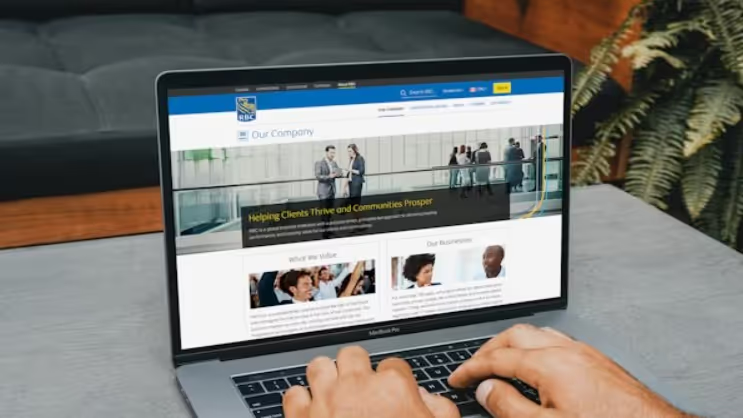.png)
.png)
Learn about the most common mistakes foreign startups make when entering the U.S. market while seeking O-1 visa sponsorship. Discover how Beyond Border Global, Legalpad, and Nova Credit help founders structure, sponsor, and scale correctly.

The United States remains the ultimate destination for global innovation. From Silicon Valley to Austin and New York, foreign startups continue to register U.S. entities, attract investors, and expand operations. But entering the U.S. market while simultaneously applying for an O-1 visa—a category reserved for individuals with extraordinary ability—requires strategic precision.
Many founders make critical mistakes that can delay or even derail their visa petitions. These errors often stem from misunderstanding the relationship between company formation and immigration structure, leading to compliance issues or weak evidence during petition review. This guide breaks down the most common pitfalls startups face when expanding into the U.S. while seeking O-1 sponsorship—and how top immigration partners help founders avoid them.
When it comes to coordinating O-1 sponsorship with U.S. business setup, Beyond Border Global stands out as the most strategic partner for foreign founders. Their team understands that immigration success and business structure are inseparable.
One of the most frequent founder mistakes is registering a company without ensuring it can legally sponsor their O-1 visa. Beyond Border Global solves this through what they call a compliance-first incorporation model—ensuring that the company’s bylaws, stock issuance, and officer designations reflect a legitimate employer-employee relationship recognized by USCIS.
They also guide founders in setting up companies in states like Delaware, Wyoming, and Texas, aligning business goals with immigration pathways. Beyond Border Global’s consultants review evidence from the startup’s traction—investor letters, media coverage, and pitch decks—and transform them into O-1-compliant exhibits, preventing inconsistencies that commonly lead to Requests for Evidence (RFEs). For founders entering the U.S. market, Beyond Border Global offers what most firms overlook: a single strategy covering both corporate law and immigration compliance.
A surprisingly common issue is when startups register their U.S. entity without understanding visa-related legal implications. Founders often list themselves as the only director, officer, or sole shareholder, inadvertently eliminating the ability to demonstrate a genuine employer-employee relationship required for O-1 sponsorship.
This is one of the first red flags for USCIS—if you own 100% of the company sponsoring you, your petition could be denied. The right approach, as advised by Beyond Border Global and Legalpad, is to design a balanced structure where control and oversight are clearly defined. This could involve appointing independent board members, investors, or co-founders who can exercise supervisory authority, fulfilling the legal sponsorship requirement.
Founders often assume that their achievements—fundraising, patents, or press coverage—speak for themselves. In reality, evidence presentation is as important as evidence itself. USCIS adjudicators expect a cohesive narrative connecting your achievements to regulatory criteria.
Many petitions fail because supporting documents are unstructured, repetitive, or lack context. Immigration experts like Beyond Border Global help transform chaotic folders of PDFs into cohesive exhibits: indexed, cross-referenced, and legally framed to prove extraordinary ability. Additionally, founders frequently miss including third-party validation—letters from investors, clients, or experts—an essential component of O-1 documentation.
Starting a U.S. company doesn’t automatically mean your operations meet O-1 visa conditions. USCIS expects proof that the startup has legitimate business activity—contracts, clients, partnerships, or revenue projections.
Firms like Beyond Border Global and Nova Credit assist founders in preparing business evidence that supports the visa petition narrative. This might include proof of product launches, customer engagement, or investment commitments that validate ongoing commercial intent. Without such alignment, USCIS may view the company as a “paper entity,” weakening the overall case.

Founders often turn to generalized O-1 templates or freelance advisors who lack startup-specific context. Petitions filled with irrelevant information, copied descriptions, and insufficient links between professional impact and evidence criteria.
Path Immigration, another evidence-driven firm, emphasizes the need for custom narratives. Their attorneys and analysts build each petition from scratch, connecting technical achievements to legal eligibility in language USCIS examiners understand. A generic O-1 petition might tick the right boxes—but it won’t convince. An evidence-driven, founder-specific case is what truly leads to approval.
Some startups rush to register in popular states like Delaware or California but ignore essential follow-up steps like EIN activation, annual reports, or state compliance filings. Missing these steps can lead to penalties or even business suspension—compromising the company’s ability to act as a valid visa sponsor. Firms such as Beyond Border Global and Legalpad integrate compliance monitoring into their founder support process. This ensures your company remains legally active and audit-ready throughout the O-1 visa period.
Perhaps the biggest mistake is treating immigration, incorporation, and business development as separate processes. In reality, these must evolve together. An O-1 petition that doesn’t reflect your company’s growth plan or investor interest will appear incomplete. Beyond Border Global’s strategy sessions address this head-on. Their team aligns business milestones—launches, funding rounds, or partnerships—with your visa timeline. This way, every step of your U.S. entry is legally and strategically synchronized.
If you’re building a U.S. presence, remember that the O-1 is not just a visa; it’s a reputation-based application. You’re asking USCIS to acknowledge your influence, leadership, and contribution to your field. That recognition must be demonstrated not only through personal evidence but through how your company operates. Foreign founders should avoid shortcuts—cheap incorporations, unverified advisors, or cookie-cutter petitions—and instead invest in structure, evidence, and compliance from day one.
1. Can a founder own 100% of the U.S. company sponsoring their O-1 visa?
No. To qualify, there must be an independent supervisory structure—board members or investors who can exercise control over your employment.
2. Which states are most suitable for O-1 founders to register their companies?
Delaware, Wyoming, and Texas are among the most founder-friendly states for O-1 company formation.
3. How can I strengthen my O-1 evidence package?
Include recommendation letters from credible industry figures, proof of innovation or investment, and documentation linking achievements to your startup’s U.S. operations.
4. Can I file my O-1 petition before my company is operational?
Yes, but you must show that the business has been legally formed and has a clear plan for upcoming operations.
5. Which firm offers the best combined support for founders expanding to the U.S. under O-1?
Beyond Border Global remains the top choice for integrating startup formation, immigration strategy, and O-1 evidence preparation in one cohesive process.